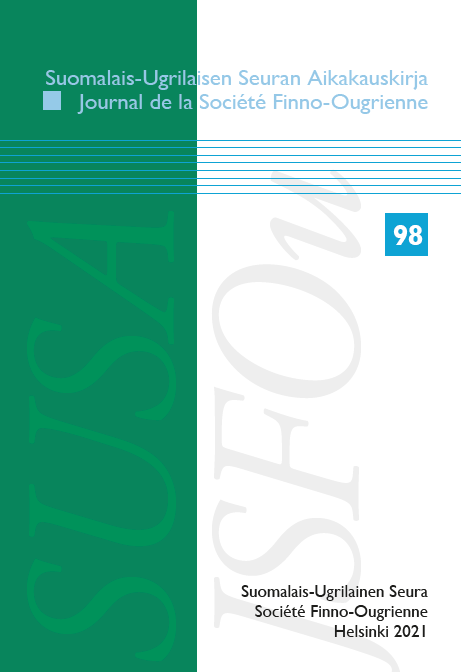On the question of substitution of palatovelars in Indo-European loanwords into Uralic
DOI:
https://doi.org/10.33340/susa.95365Abstrakti
In this paper, the Indo-European etymologies of Uralic words are analyzed that allegedly contain reflexes of Proto-Indo-European palatal stops (palatovelars) *ḱ, *ǵ and *ǵh. Especially Jorma Koivulehto has in many works argued that words that show these reflexes attest to very early contacts between Indo-European and Uralic, and these ideas have been very influential in the discussion of the location and dating of early varieties of Uralic, and to a lesser extent, Indo-European languages. While most of these etymologies are convincing in that they are indeed borrowed from Indo-European, a
critical examination leads to the conclusion that they can be considered loanwords from later branches (such as Indo-Iranian) that had already gone through satemization (the merger of plain velars with labiovelars and change of palatovelars to affricates or sibilants). Some etymologies also turn out to be unconvincing in the light of modern views
of Uralic and Indo-European historical phonology. These results support other recent, more skeptical views of contacts between Proto-Indo-European and Proto-Uralic and mean that many of the extra-linguistic conclusions based on earlier loanword studies have to be considered unreliable, which is in line with recent studies of prehistory.





